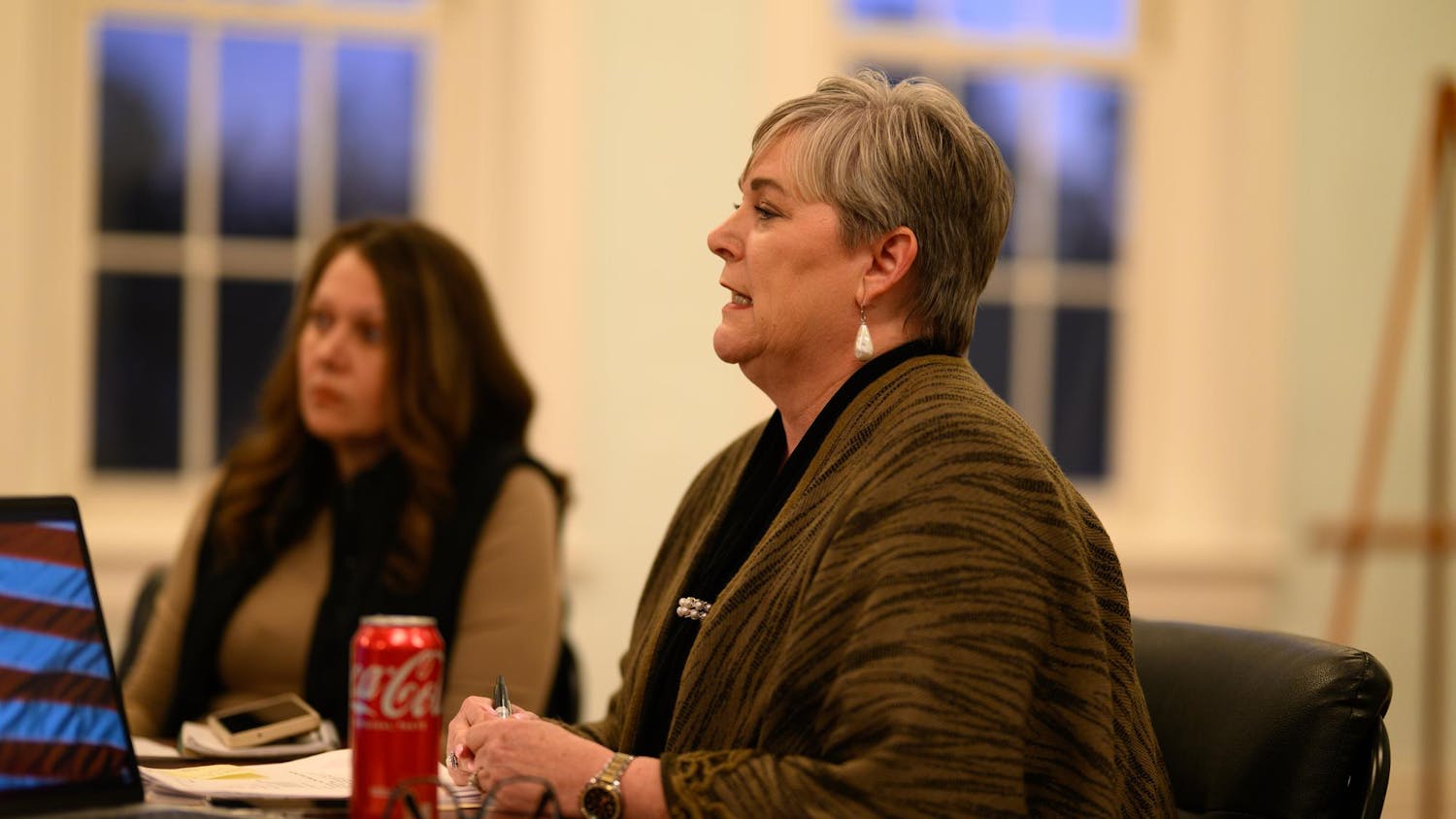Florida needs nurses.
With nursing shortages in the state expected to worsen when baby boomers retire, some say nursing-education programs need to expand. But that could be tough with impending budget cuts following state revenue shortfalls.
Kathleen Long, dean of UF's College of Nursing, wrote in an e-mail that the college can't accommodate the growing number of qualified students who apply because of a "very serious" national faculty shortage, which is where expanding UF's graduate nursing programs comes in.
But budget problems, which UF President Bernie Machen said he expects will warrant cuts of about $50 million next year, will make it difficult for an alreadyhurting nursing program to grow. Still, Long said there's hope.
She said encouraging UF's nursing graduate students to give back to their field by becoming teachers would allow the university to accept more students.
So what's the catch? It's not easy to recruit nurses to take a pay cut by going back to the classroom, especially when budget cuts could translate to fewer increases in faculty salaries, said Mary Lou Brunell, executive director of the Florida Center for Nursing, an organization contracted by the Florida Department of Health to address the nursing shortage.
Brunell said it's a vicious cycle.
Budget cuts won't attract faculty, which means there will be fewer students accepted, fewer nurses in the field and fewer teachers, she said. Any decrease in funding would hurt nursing education because it would reduce enrollment, she added.
"The gap could continue to widen," Brunell said. "Often, graduates from programs outearn faculty upon graduation."
She said current nurses need to be kept content so they stick around.
David Denslow, a UF economics professor, said without more support to nursing education, the "real problem" is going to hit Florida in about eight years.
Denslow said most baby boomers turned 62 in 2008, and when they hit their 70s they'll need a lot of care, especially in a state like Florida with a high retiree population.
That's when the state will "really start feeling the bite," and legislative cuts wouldn't be the best move, he said.
"It doesn't hurt for Florida to be funding this kind of education," Denslow said.
By 2016, more than one million nurses will be needed, according to the U.S. Bureau of Labor Statistics.
As the state's housing prices have doubled since 2000, more and more nurses are also moving away, Denslow added.
Florida Sen. Jeremy Ring, who proposed a bill to change the Florida Bright Futures Scholarship Program to increase awards for students by major, including nursing, said cuts to health services would be the most detrimental.
Ring's proposal died in session, but he reiterated the need for incentives in hurting fields, such as nursing.
"If I had to prioritize, health and human service cuts are what we should be most concerned about," he said.





